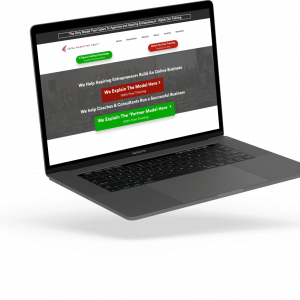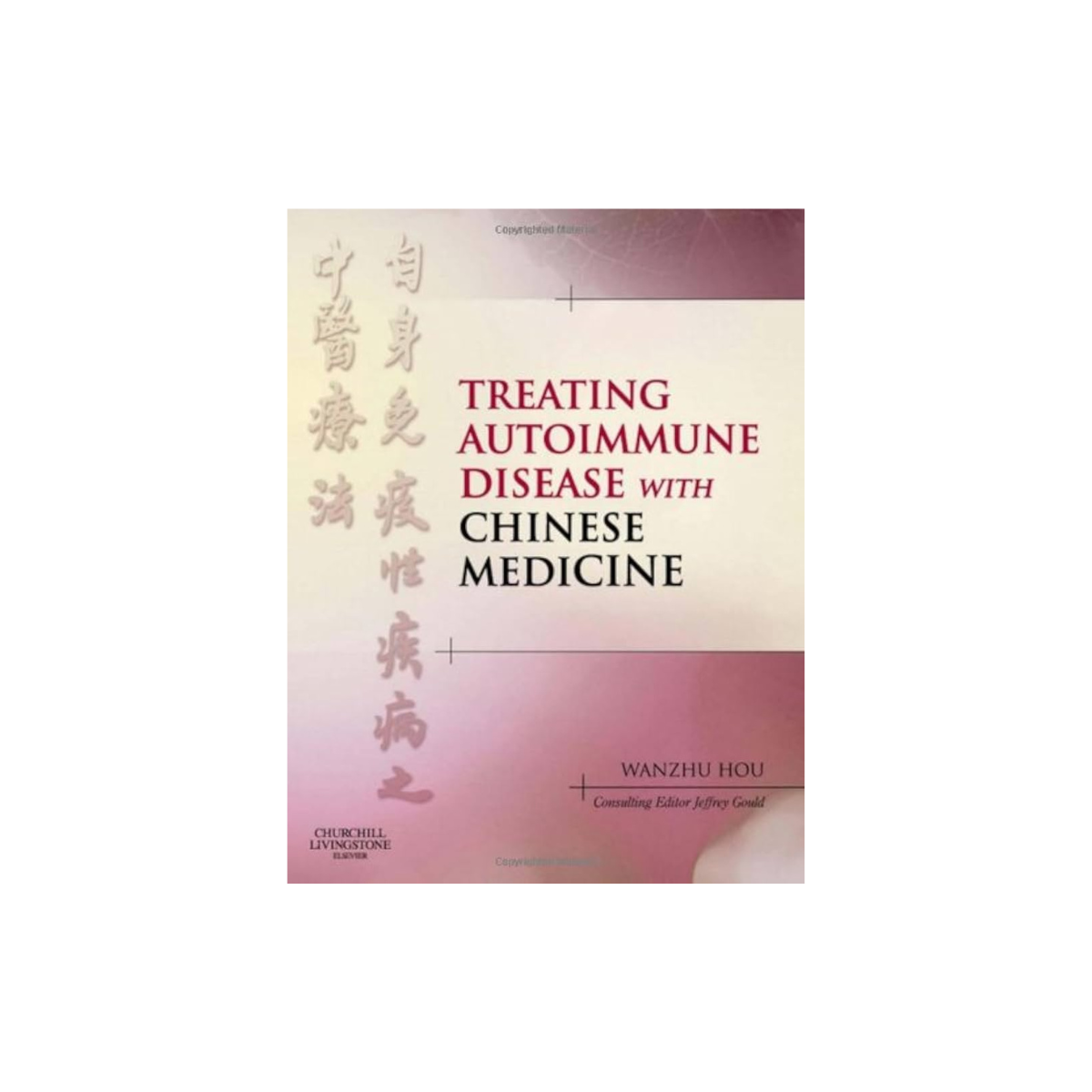Bob Flaws – Treating Allergies & Autoimmune Diseases with Chinese Medicine
$245.00 Original price was: $245.00.$49.99Current price is: $49.99.
If You Want to Pay Via Credit/Debit Card just Contact Us On Site Chat or Email: admin@turbowso.com
IMPORTANT
Product is not part of the Membership Sold separately
Overview of Bob Flaws
Bob Flaws stands out as a distinguished expert in traditional Chinese medicine (TCM) with a profound focus on treating allergies and autoimmune diseases. Over the years, he has authored more than 100 books and countless articles, providing valuable insights into the principles and applications of TCM. His work often explores the integration of acupuncture, herbal medicine, and Qi Gong in therapeutic processes. Flaws emphasizes the body’s intrinsic ability to heal, promoting a balanced energy flow to combat immune challenges. His perspective draws heavily on ancient practices, offering an alternative to conventional Western approaches. By blending technique and knowledge, Flaws enhances understanding of how traditional methods can address modern health issues effectively. His legacy includes training practitioners worldwide, ensuring his methodologies and teachings continue to influence the field of TCM significantly. Through his pioneering work, Flaws solidifies his reputation as a key figure in bridging ancient wisdom with contemporary health solutions.
Understanding Allergies and Autoimmune Diseases
Allergies occur when the immune system overreacts to harmless substances, mistaking them as threats. Common allergens include pollen, dust mites, and pet dander. Reactions vary from mild rashes to severe anaphylaxis. Autoimmune diseases involve the immune system attacking the body’s own cells, leading to conditions like lupus and rheumatoid arthritis. These diseases often cause chronic inflammation and tissue damage.Both allergies and autoimmune diseases result from immune system dysregulation. While genetics can influence susceptibility, environmental factors like diet and stress play a significant role. Traditional Chinese medicine (TCM) views these conditions as imbalances in Qi, the body’s vital energy. TCM aims to restore balance through personalized treatments, such as acupuncture and herbal remedies, which are tailored to the individual’s specific imbalances. Bob Flaws, renowned for his TCM expertise, concentrates on harmonizing energy flow to correct immune dysfunction and enhance the body’s natural healing capabilities.
Principles of Chinese Medicine
Traditional Chinese Medicine (TCM) embraces holistic healing by focusing on restoring harmony within the body, especially for managing allergies and autoimmune diseases.
Theory of Qi and Balance
Qi represents the body’s vital energy, and maintaining its balance is central to wellness in TCM. Imbalances in Qi flow are believed to cause immune dysfunctions, manifesting as allergies or autoimmune responses. By realigning Qi through personalized interventions, TCM seeks to restore health and prevent disease.
Role of Herbs and Acupuncture
Herbs and acupuncture serve as crucial tools in TCM for correcting Qi imbalances. Herbal remedies target specific symptoms and enhance overall vitality, while acupuncture stimulates energy pathways to harmonize the body’s systems. This dual approach provides a comprehensive solution to enhance the body’s self-healing processes.
Bob Flaws’ Approach to Treating Allergies
Bob Flaws leverages traditional Chinese medicine to address allergies, teaching harmony within the body to alleviate symptoms and restore balance.
Common Allergy Treatments in Chinese Medicine
Bob Flaws utilizes acupuncture to open energy pathways and relieve allergic reactions. Herbal remedies, such as Xiao Feng San for dermatitis and Jade Screen Powder for hay fever, support immune balance. Dietary modifications complement these treatments by removing triggers and nourishing vital energy. Integrating these strategies, Flaws enhances the body’s ability to manage allergies.
Success Stories and Case Studies
Bob Flaws has shared numerous case studies showcasing the effectiveness of TCM in treating allergies. In one account, a patient suffering from year-round rhinitis experienced significant symptom reduction through herbal medicine and acupuncture. Another narrative highlighted a child’s eczema improvement after adopting Flaws’ approach, significantly enhancing quality of life. These successes underscore the potential of Chinese medicine in allergy management.
Bob Flaws’ Approach to Autoimmune Diseases
Bob Flaws employs traditional Chinese medicine (TCM) techniques to address autoimmune diseases, focusing on restoring balance and enhancing the body’s natural defenses.
Traditional Chinese Medicine Techniques
Flaws uses TCM techniques including acupuncture and herbal medicine. Acupuncture focuses on key energy pathways to improve Qi flow and alleviate immune dysfunctions. Herbal formulas like Huang Qi Jian Zhong Tang are tailored to reduce inflammation and support immunity. Through these methods, I maintain optimal energy balance crucial for managing autoimmune conditions.
Integrative Practices and Innovations
Incorporating integrative practices, Flaws blends TCM with modern innovations. Personalized treatment plans often involve dietary guidance to improve gut health, known to influence autoimmune responses. Innovations might include combining TCM with Western medicine insights for comprehensive care. This approach aims to harmonize bodily systems while respecting the individual needs of each patient.
Criticisms and Challenges
Critics point out that Traditional Chinese Medicine (TCM), including Bob Flaws’ methods, faces skepticism due to misconceptions.
Misconceptions in Chinese Medicine
Some believe TCM lacks scientific backing. While empirical evidence for acupuncture and herbs exists, misconceptions persist, particularly in Western societies. Critics view TCM as outdated compared to modern pharmaceuticals even though its emphasis on individualized care and centuries of practice.
Challenges in Modern Healthcare
Integrating TCM into Western healthcare faces hurdles such as regulatory barriers and skepticism from conventional practitioners. Bob Flaws contends that bridging these worlds can enhance patient outcomes, yet exploring differing ideologies and practices proves challenging, requiring mutual understanding and collaboration.
Conclusion
Exploring Bob Flaws’ work in treating allergies and autoimmune diseases with traditional Chinese medicine has been enlightening. His holistic approach, emphasizing the balance of Qi and the body’s innate healing abilities, offers a refreshing perspective that challenges conventional Western methods. By integrating acupuncture, herbal remedies, and dietary adjustments, Flaws provides comprehensive care that addresses the root causes of immune dysfunction. While TCM faces skepticism and integration challenges, its potential to complement modern healthcare is undeniable. Flaws’ dedication to bridging ancient wisdom with contemporary practices highlights the transformative power of Chinese medicine in enhancing health and well-being.
Frequently Asked Questions
What is traditional Chinese medicine (TCM)?
Traditional Chinese medicine (TCM) is a holistic healthcare system that focuses on maintaining balance in the body’s vital energy, known as Qi. It employs techniques such as acupuncture, herbal medicine, and Qi Gong to restore balance and promote healing. TCM is used to address various health issues, including allergies and autoimmune diseases, by harmonizing the body’s energy flow and enhancing its natural self-healing abilities.
How does Bob Flaws contribute to TCM?
Bob Flaws is a renowned expert in traditional Chinese medicine, notably for using TCM to treat allergies and autoimmune diseases. He has authored over 100 books and numerous articles, providing valuable insights into the principles of TCM. Flaws is known for integrating acupuncture, herbal remedies, and Qi Gong to harmonize energy flow, correct immune dysfunction, and improve patients’ natural healing processes.
How does TCM view allergies and autoimmune diseases?
TCM considers allergies and autoimmune diseases as results of imbalances in the body’s vital energy, Qi. Allergies occur due to immune overreactions to harmless substances, while autoimmune diseases involve the immune system attacking the body’s own tissues. TCM aims to restore balance through personalized treatments, addressing these conditions by focusing on harmonizing energy flow and enhancing the body’s intrinsic healing capabilities.
What treatments does Flaws recommend for allergies?
Bob Flaws uses acupuncture to open energy pathways and relieve allergic reactions, alongside herbal remedies like Xiao Feng San for dermatitis and Jade Screen Powder for hay fever. Dietary modifications are also recommended to remove triggers and support healthy energy flow. This integrated approach is designed to reduce symptoms and improve the quality of life for allergy sufferers.
What is the role of acupuncture in TCM?
Acupuncture in TCM is used to stimulate energy pathways, or meridians, to harmonize the body’s systems and restore balance. By inserting thin needles into specific points, acupuncture promotes the flow of Qi, alleviates immune dysfunctions, and supports overall wellness. It is a key component in treating conditions such as allergies and autoimmune diseases in TCM.
How does TCM address autoimmune diseases?
TCM treats autoimmune diseases by focusing on restoring balance and enhancing the body’s natural defenses. Techniques include acupuncture to improve Qi flow and tailored herbal formulas like Huang Qi Jian Zhong Tang to reduce inflammation and support immunity. Dietary guidance to improve gut health is also included, aiming to harmonize bodily systems and respect individual patient needs.
What challenges does TCM face in Western healthcare?
TCM faces skepticism and regulatory barriers in Western healthcare, as critics often question its scientific backing compared to modern pharmaceuticals. Integrating TCM requires overcoming differing ideologies and skepticism from conventional practitioners. Despite these challenges, experts like Bob Flaws argue that combining TCM with Western methods can enhance patient outcomes through mutual understanding and collaboration.
Related products
-
Sale!

How TF Do I Scale by How TF
$1,999.00Original price was: $1,999.00.$34.99Current price is: $34.99. Add to cart -
Sale!

Roland Frasier – Epic Elite Accelerator (August 2022)
$2,995.00Original price was: $2,995.00.$34.99Current price is: $34.99. Add to cart -
Sale!

Gerry Cramer, Rob Jones – Profit Singularity
$2,497.00Original price was: $2,497.00.$39.99Current price is: $39.99. Add to cart -
Sale!

James Bonadies – Local Marketing Vault (Complete)
$2,497.00Original price was: $2,497.00.$21.99Current price is: $21.99. Add to cart
















